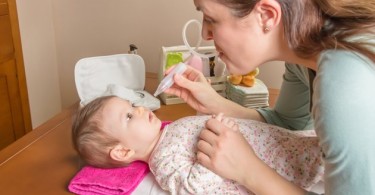Thumb sucking is a common habit of young children because it provides comfort and security. Many children begin to suck their thumbs in the womb and keep this habit in infancy and early childhood. If your baby sucks his thumb regularly, you may notice that his skin is dry, red, cracked, chapped or rashed. It's probably just a side effect of thumb sucking, but once you have all the facts, you can discuss the appropriate treatment with his pediatrician.

Advertisements
thumb-sucking
According to the New York University Children's Research Center, three-quarters of babies suck their thumbs or fingers in the first year of life. Sucking your thumb is an activity that helps calm and entertain your baby. Don't worry unless your child sucks his thumb after his fifth birthday. Long thumb sucking can lead to dental problems and may make your children more likely to be laughed at at school. Dry, chapped and reddened skin is another symptom, because your child's skin often touches saliva.
Advertisements
Skin problems
Frequent thumb sucking can cause the baby's skin to become very dry, leading to skin flakes and red. According to Jennifer Trachtenberg, author of Good Kids, Bad Habits: A Practical Guide to Healthy Kids, skin rashes can occur when your baby's skin touches his saliva frequently. If your baby drools while sucking on his thumb, there may also be a rash around his mouth. This type of rash is caused by frequent changes in your baby's skin in a humid and dry environment.
Prevention and treatment
Keep your child's thumbs and skin around the mouth as dry as possible. Wipe the saliva off your face as soon as possible and keep your thumbs dry without sucking. Reducing skin contact with baby saliva can prevent rashes. If your baby has a rash, keep the area clean. Apply mild lotion or cream to the rash to keep it moist and promote healing. If you keep your baby's face moist, it can help reduce the risk of rashes.





Comments